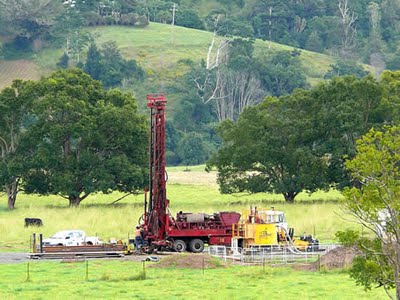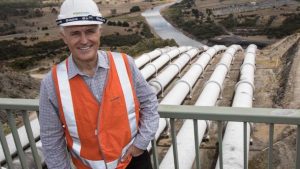In the battle of miners versus land-holders, the miners seem to have chalked up a major win this week, after the NSW Planning Assessment Commission effectively approved Rio Tinto’s twice-rejected plans to expand its controversial Warkworth coal mine in the Hunter Valley region – despite this possibly resulting in the relocation of an entire town.
In a review report tabled on Wednedsay, the Commission said the Warkworth mine would “undoubtedly have a range of adverse impacts on [the nearby] Bulga village and its community” – bad enough to warrant moving it to another location.
But it argued that these concerns were overruled by legislative and policy changes which “prioritised the significance” of the coal deposit.
“Whilst the commission notes that the current application is very similar to the previous Warkworth Extension Project that was refused by the LEC (Land and Environment Court), significant legislative and policy changes have occurred since that time,” the PAC report said.
The Committee thus recommended that Rio Tinto give “serious consideration” to compensation being paid to residents, as well as to the relocation of the village of Bulga, at the expense of the miner and the NSW government.
But the Warkworth battle is just one in a broader war pitting Australia’s mining industry against its farming industry – a war that has recruited some unlikely soldiers.
Take right-wing breakfast radio shock jock Alan Jones. The dedicated opponent of the carbon tax and, at times, renewable energy, has more recently summoned his vitriol (and considerable influence) against coal seam gas (and other coal projects) and the companies and governments enabling them.
In doing so, Jones sides with then nation’s farmers, his argument based on protecting prime rural land like Queensland’s Darling Downs – a farming area about 100km west of Brisbane (and near to Jones’ home town) – where the expansion of the New Acland coal mine has raised much local opposition and perhaps helped cost ex-Premier Campbell Newman his job.
In February, Jones warned NSW Premier Mike Baird there would be “consequences” if he allowed coal seam gas development over the NSW water table.
At both the federal and state level, the battle over conventional and unconventional coal mining has revealed serious divisions within the National party who, in lockstep with the Liberals, have traditionally supported any and all growth in Australia’s resources sector.
Now, with more and more new mining projects being developed at the cost of agriculture, cracks in this support are beginning to show.
“The Nationals are hopelessly conflicted on landholder rights,” said Greens Setator Larissa Waters in a statement on Thursday.
Waters said that while Nationals in Victoria had “finally started to realise” it was unacceptable to side with big mining companies over farmers, federal Nationals had failed to support this policy in the Senate.
“Given this recent move forward in Victoria, I put a motion to the Senate today calling for agreement that landholders across Australia should have the right to say no to CSG on their land,” Waters said.
“The Nationals deserted the chamber for the second time this week to avoid voting on a CSG matter and showing their true colours.
“Queensland Nationals Senator Barry O’Sullivan stayed in the chamber until two seconds before the division bells ended, with his eyes on the doors – presumably to ensure no other National came in to vote, and he walked out just before the vote was taken.
Earlier in the week, on Tuesday, the Nationals failed to support a separate Greens’ Senate motion calling for NSW’s Liverpool Plains to be off limits to CSG and coal, including the Shenhua Watermark mine.
“The Nationals Senators all fled the chamber for the vote, while the Liberal and Labor Senators voted against our call for the protection of the Liverpool Plains,” Waters said.
“The Nationals are playing both sides, saying one thing in regional communities and then doing another in the Parliament while taking donations from the mining and gas industry.
“The Liverpool Plains, with rich black soil, excellent water resources and ideal climatic conditions, is one of Australia’s most important farming regions.
“It’s blatantly hypocritical of the Nationals to purport to care about agriculture and then to stand by while this valuable farmland is trashed,” she said.







